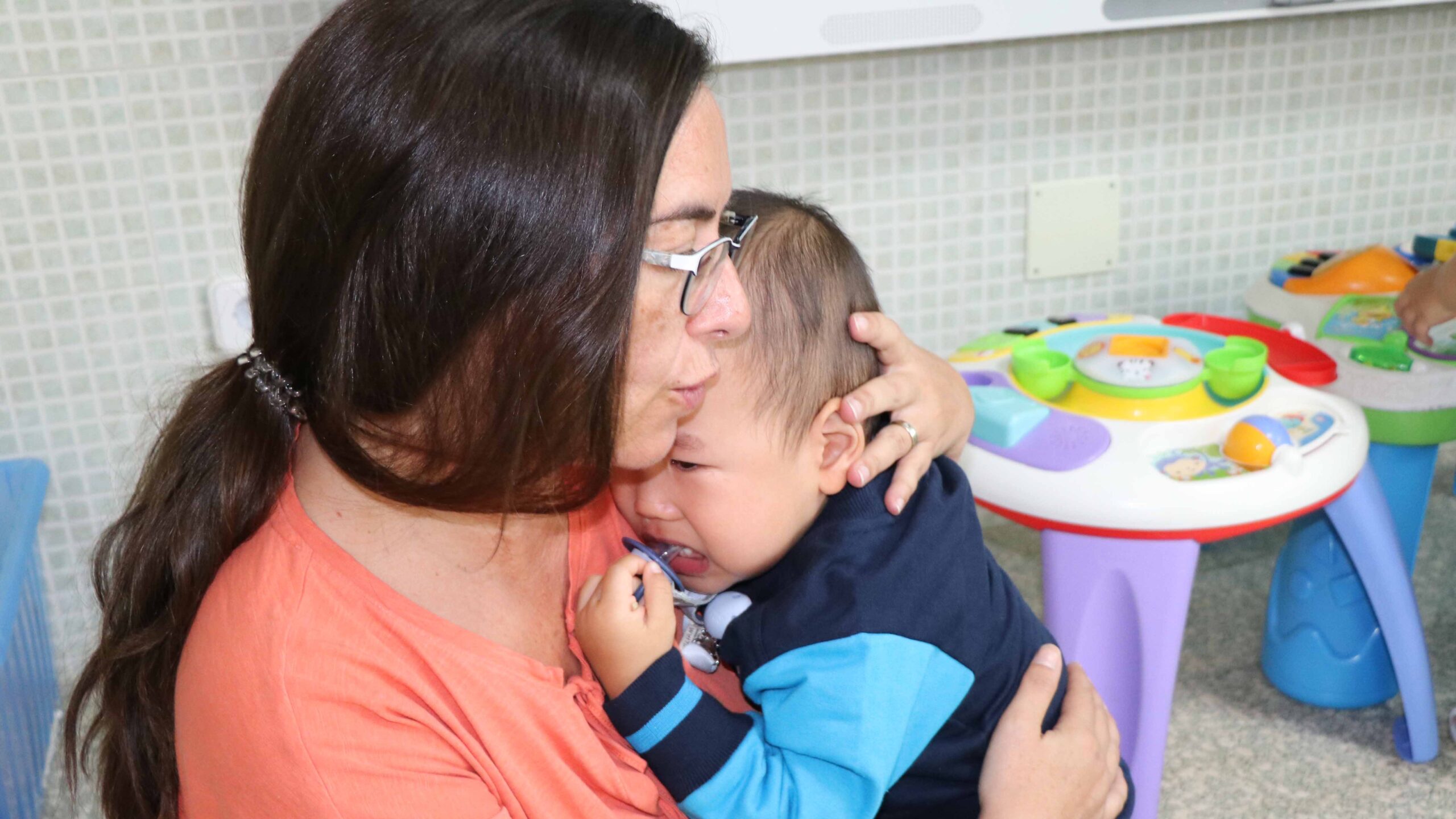The first years of life are key to a child’s emotional development. During this stage, babies do not yet know how to handle what they feel and depend on their parents to learn how to calm themselves and regulate their emotions. However, many parents are faced with situations where they do not know how to deal with their child’s inconsolable crying, tantrums or fears. Hence the importance of following good mindfulness advice for beginners.
WHY IS IT IMPORTANT TO TEACH PARENTS TO MANAGE THEIR EMOTIONS AS BABIES?
If children do not develop the tools to manage their emotions from an early age, they may have difficulties in expressing themselves, controlling frustration or relating to others in the future.
This is where mindfulness for beginners becomes a great tool. Applied to parenting, mindfulness helps children recognise and regulate their emotions, encouraging healthy and balanced emotional development.
According to studies by the Harvard Center on the Developing Child, a child’s ability to regulate his or her emotions develops largely through interactions with the adults around him or her.
Other research, such as that published by the American Psychological Association (APA), has shown that mindfulness techniques help reduce anxiety, improve concentration and strengthen resilience in children and adolescents.
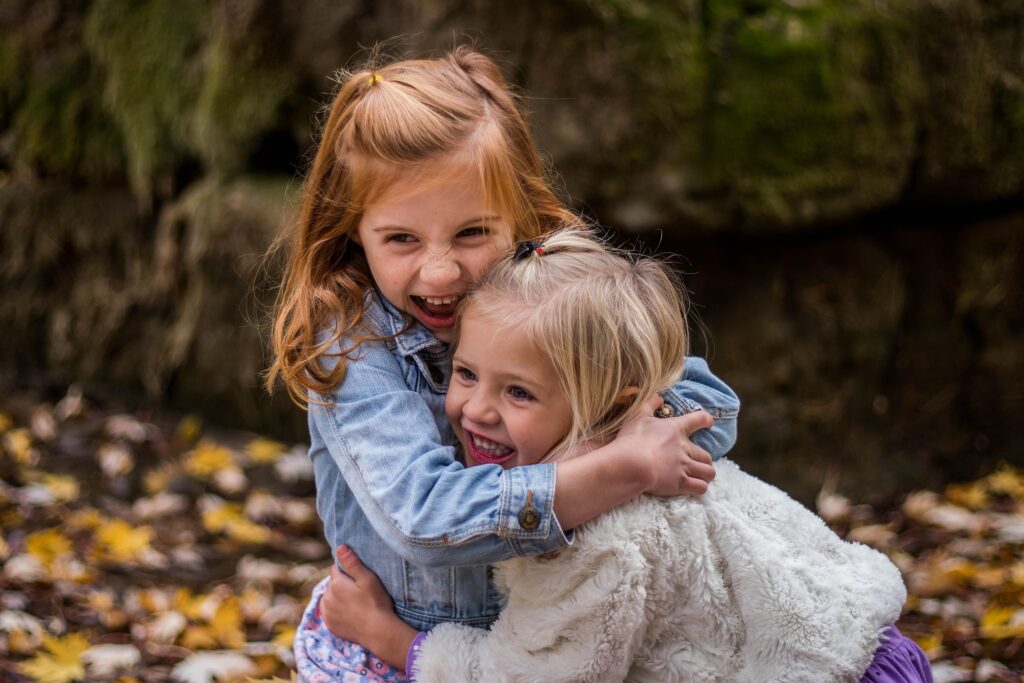
THE EFFECTS OF EMOTIONAL MISMANAGEMENT IN CHILDHOOD
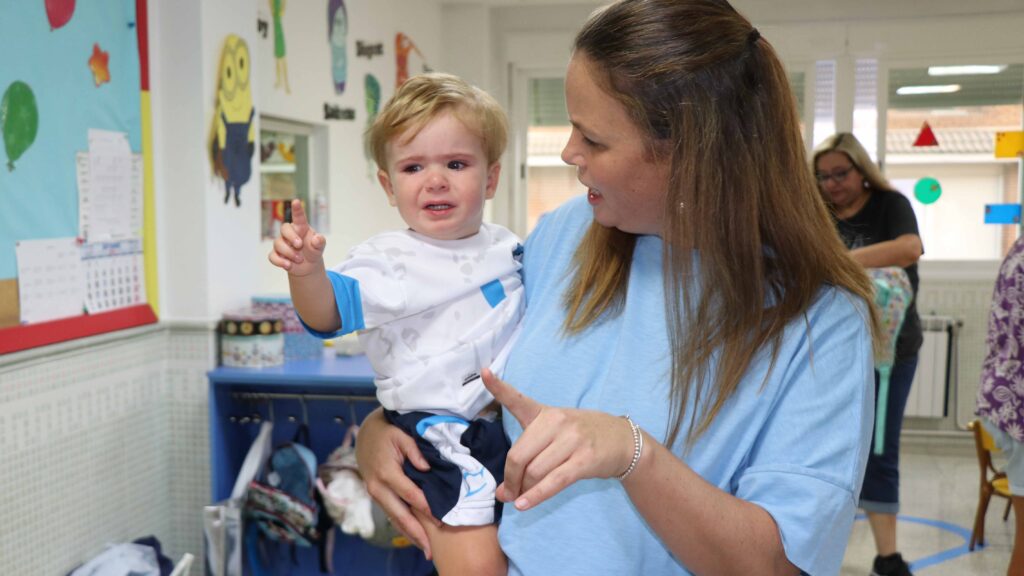
When children do not learn to manage their emotions from an early age, certain difficulties may arise in their growth:
- Difficulty calming down alone, which can lead to emotional dependence.
- Frequent tantrums or uncontrolled crying due to not knowing how to manage frustration.
- Anxiety or insecurity in new situations.
- Problems at school or in socialisation because they do not know how to communicate their emotions properly.
To avoid these situations, parents can incorporate mindfulness techniques into parenting. Here’s how to do it.
MINDFULNESS FOR BEGINNERS: TECHNIQUES TO HELP YOUR CHILD MANAGE THEIR EMOTIONS
Mindfulness is about paying full attention to the present, without judgement or impulsive reactions. Applied to children’s education, it allows children to learn to identify their emotions and manage them in a positive way.
Here are some practical strategies to apply mindfulness for beginners at home and help your child as a baby:
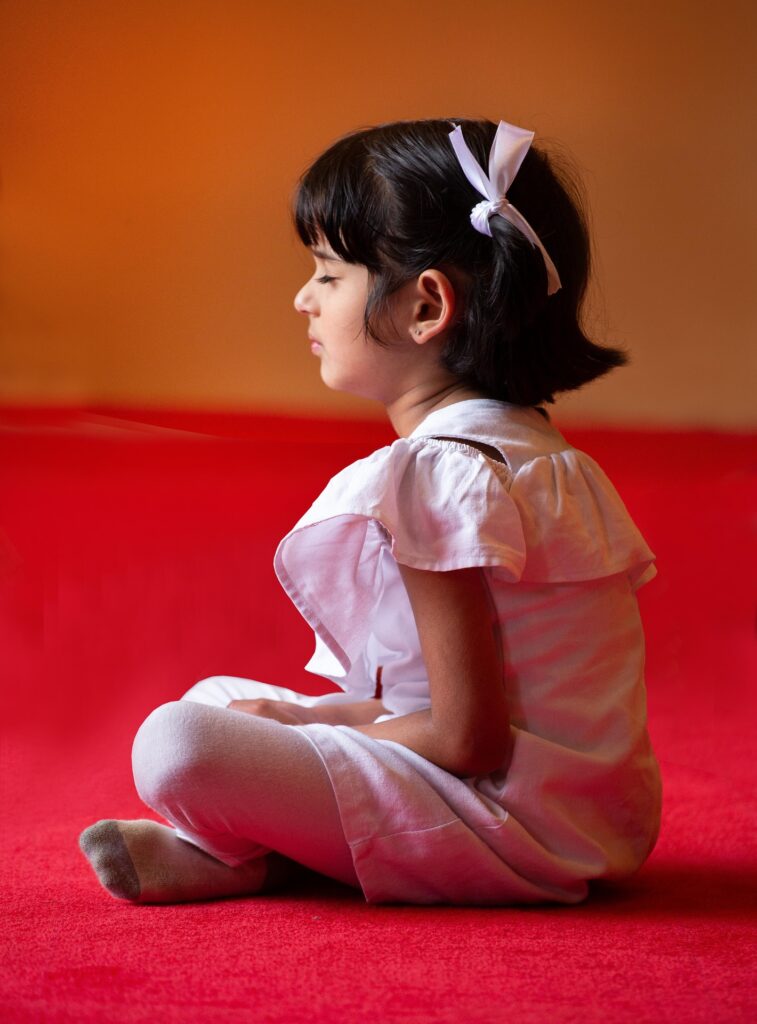
1. Remain calm to convey confidence
Babies sense and absorb their parents’ emotions. If you are calm, they will be calm too. Mindfulness meditation can help you manage stress and respond calmly in times of tension.
Practical example: If your baby is fussy and cries a lot, instead of responding with frustration, take a deep breath and speak calmly: “I know you’re upset, I’m here with you.
2. Accompany your emotions instead of repressing them.
Phrases such as “don’t cry” or “don’t be angry” can make children feel that their emotions are not valid. Instead, help them to recognise what they are feeling with phrases such as “don’t cry” or “don’t be angry”:


Naming emotions helps them to process them better.
3. Create a calm atmosphere at home
A calm environment is conducive to emotional self-regulation. You can include relaxing routines such as a warm bath before bedtime, soft music or a bedtime story.
Practical example: Introducing mindfulness to sleep, with deep breathing before bedtime, helps children to relax and fall asleep more easily.
4. Use breathing as an element of relaxation
Babies and toddlers can learn to calm themselves through breathing. Try taking deep breaths close to your child when you notice that he or she is nervous. Over time, they will imitate this habit and incorporate it as a natural way to calm themselves.
Practical example: Teach him the “candle” exercise: ask him to imagine that he has a lit candle in front of him and that he has to blow it out gently. This will help him to control his breathing and calm down.
5. Reinforce physical contact and emotional connection.
Cuddling, skin-to-skin contact and a soft tone of voice create a sense of security for the baby. You can also practice mindfulness meditation with your baby in your arms, speaking calmly and reassuringly.
Real testimonial: “Since we started practising mindfulness with our 2-year-old son, we have noticed that he calms down faster when he is upset. Now, when he is nervous, he tells us himself that he needs to do ‘magic breaths’.”
FREQUENTLY ASKED QUESTIONS ABOUT MINDFULNESS IN INFANTS AND TODDLERS
1. From what age can mindfulness be practised with a baby?
From birth. You can start with your own calm attitude and with routines of physical contact and conscious breathing.
2. How much time per day is it advisable to practice mindfulness with a child?
There is no fixed time, but small moments throughout the day, such as when waking up, before going to sleep or in times of stress, can make a difference.
Can mindfulness help my child sleep better?
Yes, techniques such as mindful breathing and relaxing routines can improve sleep quality in children.
“Life is a dance. Mindfulness is witnessing that dance”.
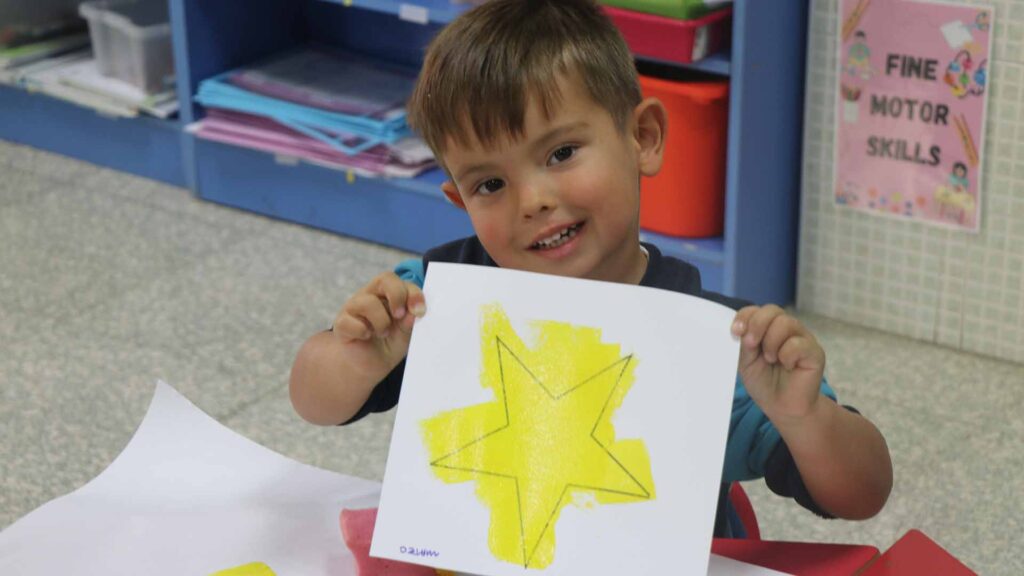
CASVI VILLAVICIOSA'S COMMITMENT TO EMOTIONAL EDUCATION
At Casvi Villaviciosa International School, we believe in the importance of emotional wellbeing from the earliest years of life. Therefore, we promote emotional intelligence in the classroom, creating an environment where children learn to manage their emotions in a healthy way.
Discover how at Casvi Villaviciosa we help children to develop their emotional intelligence from childhood.

